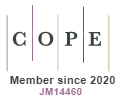Creativity, innovation and entrepreneurship in academic training with project-based learning integrated with STEAM
DOI:
https://doi.org/10.5585/50.2024.27614Keywords:
PBL, STEAM, entrepreneurship, creativity, innovationAbstract
This article presents PBL (Project-Based Learning) integrated with STEAM (Science, Technology, Engineering, Arts, Mathematics) and its contributions to academic training, identifying points of consonance regarding creative development, innovation and stimulation of entrepreneurial behavior in vocational technical education. The article will point out the technological trends for the beginning of the 21st century and their relationship with education, and how PBL with a STEAM approach integrates into this scenario, in order to stimulate creativity, innovation and the promotion of entrepreneurship in education. To this end, the research question is how to stimulate creativity, innovation and entrepreneurial behavior through the PBL method integrated with STEAM, in vocational technical education. The methodology adopted was based on the bibliographic review on the PBL method, STEAM and its relationship with technological trends, pedagogical practices in education and entrepreneurship.
Downloads
References
BACICH, L.; HOLANDA, L. (orgs.). STEAM em sala de aula: a aprendizagem baseada em projetos integrando conhecimentos na educação básica. Porto Alegre: Penso, 2020.
BARELL, J. Problem-based learning: the foundation for 21st century skills. In: BELLANCA, J.;
BRANDT, R. (Eds.). 21st century skills: rethinking how students learn. Bloomington: Solution Tree Press, 2010.
BARBOSA, E. F.; MOURA, D. G. Metodologias ativas de aprendizagem na educação profissional e tecnológica. Boletim Técnico Senac, Rio de Janeiro, v. 39, n. 2, p. 48-67, maio-ago. 2013. Disponível em: https://www.bts.senac.br/bts/article/view/349. Acesso em: mai. 2024.
BARON, K. Six steps for planning a successful project. Edutopia, San Rafael, 15 mar. 2010. Disponível em: https://www.edutopia.org/stw-maine-project-based-learning-six-steps-planning. Acesso em: jul. 2024.
BRASIL. Ministério da Educação. Base Nacional Comum Curricular: Ensino Médio. Brasília, DF: MEC, 2018. Disponível em: http://basenacionalcomum.mec.gov.br/. Acesso em: 18 out. 2024.
BELLAND, B. R.; FRENCH, B. F.; ERTMER, P. A. Validity and problem-based learning research: a review of instruments used to assess intended learning outcomes. Interdisciplinary Journal of Problem-Based Learning, Indiana, v. 3, n. 1, p. 59-89, 2009. Disponível em: https://digitalcommons.usu.edu/itls_facpub/53/. Acesso em: jul. 2024.
BENDER, W. N. Aprendizagem baseada em projetos. Porto Alegre: Penso, 2014.
BOSS, S., KRAUSS, J. Reinventing Project-based learning: you field guide to real-world projects in the digital age. EUA: International Society for Tecnology in Education (ISTE). 2007.
BOSS, S., LARMER, J. MERGENDOLLER, J.R. PBL for 21ST Century Sucess. Buck Institute for Education (BIE), 2013.
BROWN, T. Uma metodologia poderosa para decretar o fim das velhas ideias. Rio de Janeiro: Elsevier, 2010.
BROWN, T. Design thinking. Harvard Business Review, v. 86, n. 6, p. 85-92, jun. 2008.BROWN, T. Uma metodologia poderosa para decretar o fim das velhas ideias. Rio de Janeiro: Elsevier, 2010.
BROWN, T. Design thinking. Harvard Business Review, v. 86, n. 6, p. 85-92, jun. 2008.
BOY, G.A. From STEM to STEAM: toward a human-centered education, creativity & learning thinking. In: EUROPEAN CONFERENCE ON COGNITIVE ERGONOMICS, 31., 2013, Toulouse. Proceedings [...]. New York: ACM, 2013.
BUCK INSTITUTE FOR EDUCATION. Aprendizagem Baseada em Projetos: guia para professores do ensino fundamental e médio. 2.ed. Porto Alegre: Armed, 2008.
D’AMBROSIO, U. Sobre las propuestas curriculares Steam (Science, Technology, Engineering, Matematics y Steam (Science, Tecnology, Engineering, Arts, Matematics) y el Programa de Etnomatemática. Paradigma., [s. l.], p. 151-167, 2020. DOI: 10.37618/PARADIGMA.1011-2251. 2020.p151-167. id 876. Disponível em: http://revistaparadigma.online/ojs/index.php/paradigma/article/view/876. Acesso em: 17 maio. 2024.
FADEL, C.; BIALIK, M.; TRILLING, B. Educação em Quatro Dimensões - As competências que os estudantes precisam ter para atingir o sucesso. Disponível em:https://curriculumredesign.org/wp-content/uploads/Educacao-em-quatro-dimensoes-Portuguese.pdf. Acesso em: 06 out. 2024.
FÓRUM ECONÔMICO MUNDIAL. News Release. Disponível em: https://www3.weforum.org/docs/WEF_Future_of_Jobs_2023_News_Release_Pt_BR.pdf. Acesso em: 07 out. 2024.
GROSS, K.; GROSS, S. Transformation: constructivism, design thinking, and elementary STEAM. Art Education, v. 69, n.6, p36-43, 2016.
INTERNACIONAL SOCIETY FOR TECHNOLOGY IN EDUCATION. Padrões ISTE para Educadores: Competências de Pensamento Computacional, 2018. Disponível em: https:// www.site.org/standards/for-students. Acesso em: 15 out. 2024.
LIAO, C. From interdisciplinary to transdisciplinary: an arts-integrated approach to STEAM education. Art Education, v.69, n.6, p. 44-49, 2016.
MAIA, D. L.; CARVALHO, R.A.; APPELT, V.K. Abordagem STEAM na educação básica brasileira: uma revisão da literatura. Revista Tecnologia e Sociedade, Curitiba, v. 17, n. 49, p. 68-88, out/dez., 2021. Disponível em: https://periodicos.utfpr.edu.br/rts/article/view/13536. Acesso em: maio, 2024.
MORAN, J. M. Ensino e aprendizagem inovadores com apoio de tecnologias. In Novas tecnologias e mediação pedagógica. Campinas: Papirus, 2013, cap.1, p. 11-73.
MOREIRA, M. A. Teorias de Aprendizagem. São Paulo: EPU, 2017.
MUNARI, B. Das coisas nascem coisas. 3. ed. São Paulo: Martins Fontes, 2015.
PARTNERSHIP FOR 21ST CENTURY SKILLS. 21st.century learning environments. Washington: P21, 2009, Disponível em: www.21stcenturyskills.org/ documents/1e_white_paper-1.pdf Acesso em: jul. 2018.
PARTNERSHIP FOR 21ST CENTURY SKILLS. 21st century learning environments. Washington: P21, 2009. Disponível em: www.21stcenturyskills.org/documents/1e_white_paper-1.pdf. Acesso em: jul. 2018.
RILEY, S. Arts integration and STEAM: quick resource pack. The Institute for Arts Integration and STEAM: Westminster, MD, 2020.
SEBRAE. Disponível em: Qual a diferença entre empreendedor e empresário? https://www.sebrae-sc.com.br/blog/empreendedor-e empresario#:~:text=%C3%89%20um%20realizador%20que%20coloca,empreendedores%20de%20sucesso%20n%C3%A3o%20faltam. Acesso em: 13 out. 2024.
WALLER, I. Is your kid´s classroom connection high school? Six easy ways to engage students with tecnology in Reading! Teacher´s Workshop Newsletter, v.4, n.1, p.1-3, 2011.
Downloads
Published
How to Cite
Issue
Section
License
Copyright (c) 2024 Lilian Amatucci Gazoti; Dalva Célia Henriques Rocha Guazzelli

This work is licensed under a Creative Commons Attribution-NonCommercial-ShareAlike 4.0 International License.
- Abstract 252
- PDF (Português (Brasil)) 108






